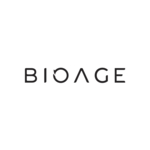BioAge Developing a Novel Class of Potent NLRP3 Inhibitors With Distinct Structural and Pharmacologic Properties for Inflammatory and Age-Related Diseases

New compounds specifically inhibit NLRP3 in mouse models and human cells
Series includes orally active small molecules capable of crossing the blood–brain barrier, enabling their use in treating neuroinflammation
RICHMOND, Calif.–(BUSINESS WIRE)–BioAge Labs, Inc. (“BioAge”, “the Company”), a biotechnology company developing therapeutics that target the molecular causes of aging to extend healthy human lifespan, today announced that it is developing a family of novel small-molecule NLRP3 inhibitors as therapeutics for inflammatory and age-related diseases. The inhibitors, BioAge’s first proprietary compounds, were created by leveraging the Company’s unique platform and in-house drug development expertise. The BioAge family of NLRP3 inhibitors has differentiated features including
- Unique and novel chemical structures and biological properties
- Drug-like metabolic stability and potent in vivo activity
- Excellent central nervous system (CNS) penetration in preclinical models
- Specific anti-inflammasome activity, based on blockade of IL-1β, in ex vivo and in vivo models
“Our NLRP3 program demonstrates BioAge’s ability to create and develop completely new proprietary compounds that can be deployed to treat age-related disease, complementing our diverse portfolio of clinical-stage in-licensed drugs,” said Kristen Fortney, PhD, CEO and co-founder of BioAge. “Chronic activation of the NLRP3 inflammasome is a key contributor to pathologic inflammation, which drives multiple disorders related to aging. Thus, the Company’s new inhibitors have enormous potential as therapeutics for diseases caused by immune and brain aging.”
BioAge’s AI-driven discovery platform, based on analysis of proprietary human aging cohort data, revealed that NLRP3 levels rise with age and are positively correlated with all-cause mortality. To identify novel NLRP3 inhibitors, BioAge screened billions of molecules in a DNA-encoded library (DEL) for compounds that bind purified NLRP3 protein, yielding drug-like compounds that functionally inhibit the NLRP3 inflammasome in vitro with comparable or superior potency relative to publicly known inhibitors.
Further structural modification of the most potent screen hits by the Company yielded strong on-target effects in preclinical studies in vitro and in vivo. A compound from this modified series blocked production of IL-1β, a specific marker of inflammasome activation, in response to lipopolysaccharide challenge in intact mice and cultured human and mouse cells.
The newly identified molecules have novel structures and chemical properties distinct from those of publicly known NLRP3 inhibitors, and some are capable of crossing the blood–brain barrier. Following administration to mice, a CNS-penetrant compound in the series rapidly entered the brain at a concentration sufficient to modulate NLRP3 in vitro.
In addition to compounds that can reach the brain, the new inhibitors include molecules with high oral bioavailability that are selective for peripheral tissues, as well as highly potent, permeable molecules suitable for topical administration, positioning BioAge to develop the new inhibitors for a wide range of indications.
“Inflammatory diseases affect both the brain and the periphery, and our neutral chemical series allows us to develop compounds of diverse structures to target both compartments,” said BioAge senior advisor George Hartman, PhD. “These novel chemical leads and favorable biological profiles have enabled the Company to define and claim a very broad intellectual property position.”
IND submission is anticipated in the second half of 2023.
About BioAge Labs, Inc.
BioAge is a clinical-stage biotechnology company developing a pipeline of treatments to extend healthy lifespan by targeting the molecular causes of aging. The company uses its discovery platform, which combines quantitative analysis of proprietary longitudinal human samples with detailed health records tracking individuals over the lifespan, to map out the key molecular pathways that impact healthy human aging, thus revealing the causes of age-related disease. By targeting the mechanisms of aging with a large and mechanistically diverse portfolio of drugs, BioAge is unlocking opportunities to treat or even prevent these diseases in entirely new ways. To date, BioAge has raised $127M from Andreessen Horowitz, Kaiser Foundation Hospitals, and others. BioAge currently has three clinical-stage programs in its growing portfolio. For additional information about BioAge, visit the company’s website at https://www.bioagelabs.com.
Contacts
IR|PR: Chris Patil, media@bioagelabs.com
Partnering: partnering@bioagelabs.com
Web: https://bioagelabs.com
